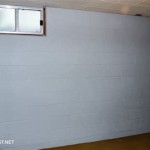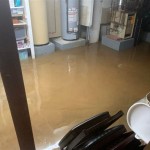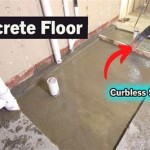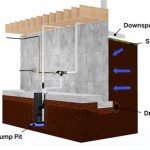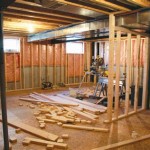Does Closing Basement Vents in Summer Improve Energy Efficiency?
The question of whether to close basement vents during the summer months is a common one, sparking debate among homeowners and energy efficiency experts alike. The rationale behind the query stems from the desire to reduce energy consumption and lower cooling costs. However, the answer isn't a simple yes or no; it's contingent on several factors, including basement construction, climate, and HVAC system configuration. Closing basement vents can have both positive and negative effects, and understanding these is crucial for making an informed decision about home energy management.
Basements, by their nature, are cooler than the rest of the house, especially during summer. This coolness results primarily from their location underground, where the earth's temperature remains relatively stable year-round. Consequently, basements often have higher humidity levels due to the cooler air's reduced capacity to hold moisture. The interaction between this cool, humid air and the warmer, drier air from the upper levels of the house is the crux of the issue when considering vent closure.
Traditionally, basement vents were designed to provide ventilation, reducing moisture buildup and preventing problems like mold and mildew growth. The belief was that allowing outside air to circulate through the basement would keep it dry and prevent unpleasant smells. However, modern building practices and HVAC systems have altered the dynamic, necessitating a reevaluation of this conventional wisdom.
Understanding the Potential Benefits of Closing Basement Vents
Closing basement vents during the summer can potentially offer several advantages, primarily related to energy conservation and indoor air quality. The effectiveness of these benefits depends largely on the specific characteristics of the home and its environment.
One primary benefit is the potential reduction in energy consumption. If the basement is already cooler than the rest of the house, allowing hot, humid outside air to enter through the vents can increase the load on the air conditioning system. The air conditioner then has to work harder to maintain the desired temperature throughout the house, including counteracting the influx of warm, moist air into the basement. By closing the vents, the homeowner can potentially reduce this load and lower cooling costs. This is particularly relevant in climates known for high humidity levels.
Another potential benefit is improved indoor air quality. Open basement vents can allow allergens, pollutants, and pests to enter the basement and, subsequently, the rest of the house. Closing the vents can help prevent these unwanted elements from entering the living space, contributing to a healthier indoor environment. This is particularly beneficial for individuals with allergies or respiratory sensitivities.
Furthermore, closing vents can prevent the introduction of moisture into the basement during periods of rain or high humidity. While basements are often prone to moisture issues regardless, preventing additional moisture influx can help mitigate the risk of mold and mildew growth. This is especially important for basements that are not properly sealed or waterproofed.
Weighing the Potential Drawbacks
While closing basement vents might appear beneficial, it's crucial to consider the potential downsides. These drawbacks primarily revolve around the possibility of increased humidity and the potential for mold and mildew growth in the basement.
One significant concern is that closing the vents can trap moisture inside the basement, leading to higher humidity levels. As mentioned earlier, basements naturally tend to be more humid than other parts of the house due to their cooler temperatures. Sealing the vents can exacerbate this issue by preventing natural air circulation, allowing moisture to accumulate and creating a favorable environment for mold and mildew growth. This is especially problematic in basements with pre-existing moisture issues, such as leaks or inadequate waterproofing.
Another potential drawback is the creation of a stagnant air environment. Without ventilation, the air in the basement can become stale and musty, leading to unpleasant odors. This can also contribute to the accumulation of dust and other airborne particles, potentially impacting indoor air quality, especially if the basement is used as a living space or for storage.
Furthermore, if the home's HVAC system is designed to utilize the basement as part of its air circulation, closing the vents can disrupt the system's efficiency. In some homes, the basement serves as a return air plenum, and blocking the vents can impede airflow and reduce the system's ability to effectively cool or heat the home. This can result in uneven temperatures throughout the house and increased energy consumption.
Factors to Consider Before Closing Basement Vents
Before deciding whether to close basement vents during the summer, several factors must be carefully considered to ensure the best outcome for both energy efficiency and indoor air quality.
The first and perhaps most important factor is the level of humidity in the basement. If the basement is already prone to high humidity levels, closing the vents without addressing the underlying moisture issues can exacerbate the problem, leading to mold and mildew growth. In such cases, it's crucial to address the source of the moisture before considering vent closure. This may involve improving waterproofing, repairing leaks, or installing a dehumidifier.
The second factor is the configuration of the home's HVAC system. If the basement is used as part of the system's air circulation, closing the vents can negatively impact its efficiency. In such cases, it's best to consult with an HVAC professional to determine the optimal approach for energy conservation without compromising the system's performance.
The third factor is the climate. In humid climates, the potential benefits of closing vents to reduce AC load may be outweighed by the risk of increased humidity and mold growth in the basement. In drier climates, closing vents may be less problematic, but it's still important to monitor humidity levels and ensure adequate ventilation.
Finally, consider the use of the basement. If the basement is used as a living space, it's particularly important to maintain good ventilation and air quality. Closing vents in such cases may not be advisable unless the basement is properly insulated, sealed, and dehumidified. If the basement is primarily used for storage, the need for ventilation may be less critical, but it's still important to monitor humidity levels and prevent mold growth.
Ultimately, the decision of whether to close basement vents during the summer is a complex one that requires careful consideration of various factors. There is no one-size-fits-all answer, and the optimal approach may vary depending on the specific characteristics of the home and its environment. Consulting with a qualified home energy auditor or HVAC professional can provide valuable insights and help homeowners make informed decisions about their home energy management strategies.
In the interim, regularly monitoring the humidity levels in the basement using a hygrometer can provide valuable data. If humidity levels consistently exceed 60%, it may be a sign that closing the vents is not advisable without addressing the underlying moisture issues. Conversely, if humidity levels remain within an acceptable range, closing the vents may be a viable option for reducing energy consumption and improving indoor air quality.
Furthermore, consider alternative strategies for managing basement humidity, such as installing a dehumidifier, improving ventilation, or sealing cracks and other openings that allow moisture to enter the basement. These strategies can help mitigate the risk of mold and mildew growth, even if the vents are closed during the summer months.

Can You Close Your Basement Vents During The Summer Jes Foundation Repair

Does Shutting Off Vents Help In Summer All Coast Inspections

Can You Close Your Basement Vents During The Summer

Should Heating Vents Be Closed In The Summer Ambient Edge

Basement Vents Open Or Closed In Summer Debunking Airflow Myths Beachwood Air

Basement Vents Open Or Closed In Summer Archives Lawes Company
Closing Heating Vents In The Summer Salmon Plumbing

Misconception Should I Close Crawl Space Vents In Winter And Open Summer Youtube

Should Basement Vents Be Open Or Closed In The Summer Kc Pier Youtube

Should Basement Air Vents Be Open Or Closed Innovative Authority
Related Posts

